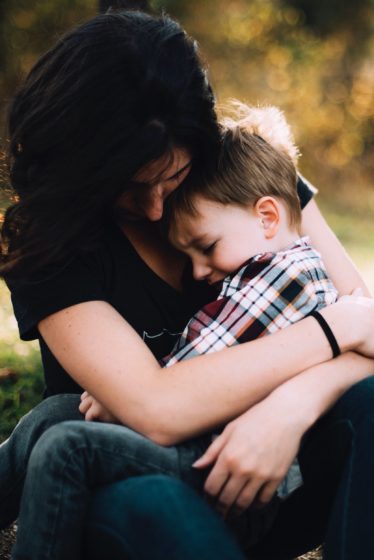A fourteen year old client sat opposite me yesterday, tears rolling down her cheeks. “Why can’t they just do the right thing?” she asked of me. “The right thing,” in her mind, was that her mother, who had been separated from her father for a year, should not be ostracized by her father’s family. Despite the time that had passed, my client is still having a difficult time coming to terms with the changes in their lives and is especially feeling torn between her mother, to whom she feels a strong loyalty, and her father’s sister and parents who no longer call to chat with her mother, even though they maintained close contact when her parents were married.
As a way of helping her understand the situation through a teenager’s eyes, I asked her to think about what she might do if her sister, only a year older than her, had fought with a mutual friend and then asked her to no longer have anything to do with her either. We talked about how she might feel torn – wanting to be loyal to both her sister and their mutual friend but feeling a stronger loyalty towards her sister. We talked about how her sister might feel if she were to continue being friends with the person who she had fought with. That she would likely feel betrayed. Despite understanding the loyalty split, my young client still insisted that she would try to mediate a dialogue between her sister and their friend and if nothing worked, that she would still do the “right” thing by not abandoning their friend “just because” her sister had.
I acknowledged that in the ideal world, her mother and father would not ask anyone to take sides. I validated that her feelings towards her aunt and grandparents were normal – feeling angry and disappointed in them for not maintaining a connection to her mother made her feel that she no longer wanted to spend time with either. I know that in time, as she grows and has more life experience, she will better understand that life is not always ideal and that emotions often over rule logic. At this time, I know that the best I can do is help her deal with her conflicted emotions and to find a way of being able to share what she is feeling – either with them, with me or both as a way of being able to keep the lines of communication open with everyone. Since extended family member’s response to an ex is generally directed by their own sibling or child, my goal is to also help to talk to her dad about how she is feeling so that he can see how by asking his family to cut off all ties from his ex is affecting his child and ultimately their relationship as father and daughter.
When couples divorce, there is a domino effect. Unless there are no children in the family, it is never just the couple that feel the impact of being apart. Children always have to deal with the many changes to their lives. And aside from the children, extended family and friends often feel that the need to support one person over the other and may even be asked to take sides. As much as possible, while still validating the loss and anguish that one’s sibling, child or friend is going through, it is important to remember to try to remain as neutral as possible.
